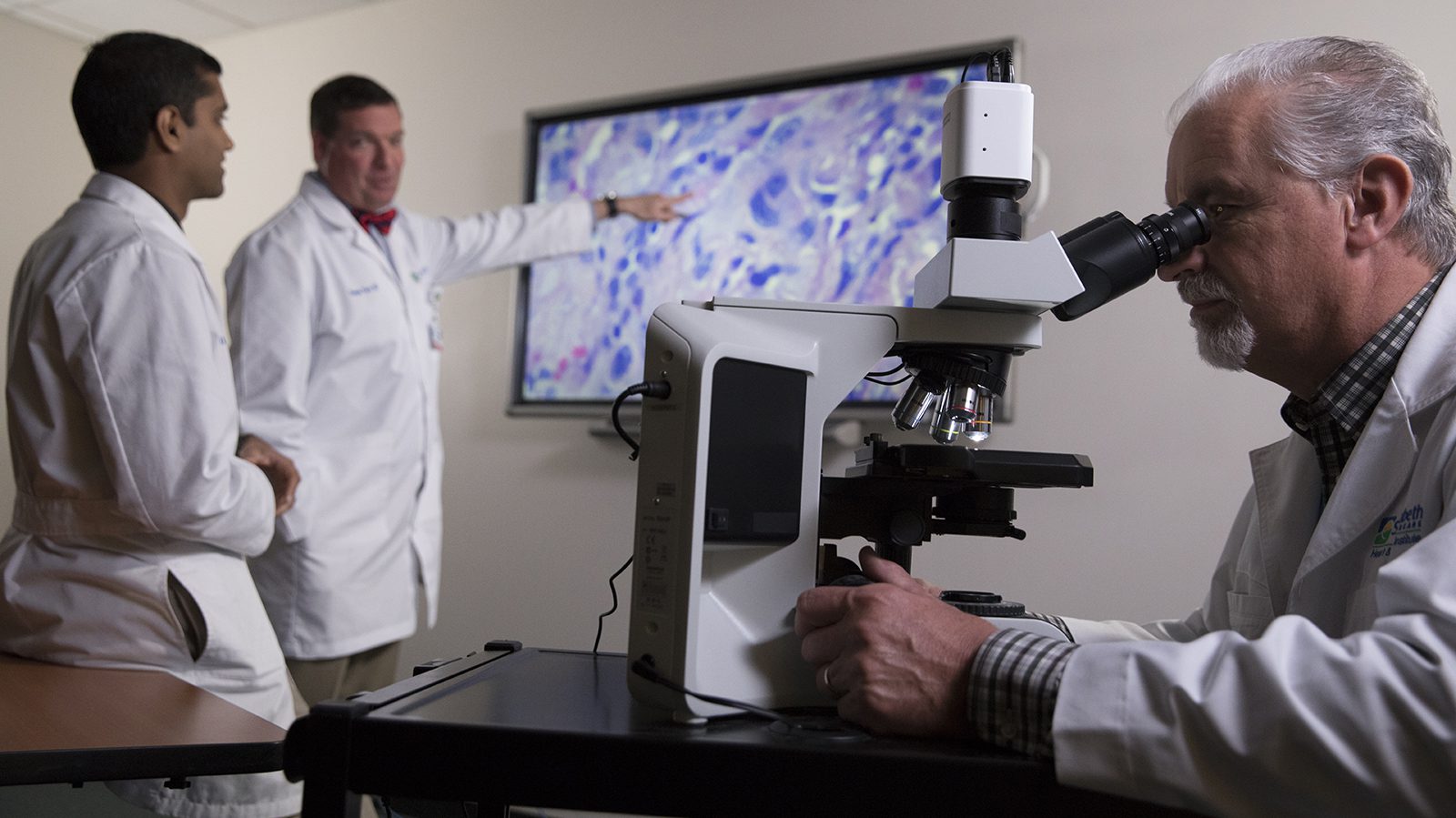Throat Cancer
The cancer care specialists at St. Elizabeth Healthcare provide personalized treatment for throat cancer. Our care starts with an accurate diagnosis informing your individualized treatment plan. A team of experts offers guidance throughout your care and supports your overall well being.
Throat cancer is a type of head and neck cancer. It can develop in your throat, vocal cords, voice box, oropharynx or tonsils. Doctors name throat cancer according to the area of your throat it starts in. The most common types are laryngeal and oropharyngeal cancers.

Make an appointment
For more information, please contact your oncologist or call (859) 301-4000.
Causes and Risk Factors of Throat Cancer
Knowing the risk factors for throat cancer can help you choose healthy behaviors to reduce your risk and talk to your provider if you have a concern. Your risk of throat cancer may increase with:
- Tobacco use, including smoking, vaping and chewing tobacco.
- Heavy alcohol use.
- Certain types of human papillomavirus (HPV) infection.
In certain cases, it is not always clear what causes throat cancer. Research is ongoing to determine if genetic abnormalities play a role.
Symptoms of Throat Cancer
Throat cancer may not cause noticeable symptoms in its earliest stages. As the disease progresses, common symptoms may include:
- Difficulty swallowing.
- Ear pain.
- Hoarseness and voice changes.
- Lumps in your throat, mouth or neck.
- Sore throat that lasts.
- Swollen lymph nodes.
- Unexplained weight loss.
Many other, less severe conditions can cause these symptoms. If you notice any of these symptoms, tell your primary care provider.
Diagnosing Throat Cancer
The best treatment plan starts with an accurate diagnosis. We use a variety of tests to identify your cancer and understand your health. We begin with a physical exam and a comprehensive review of your health history.
Treating Throat Cancer
You will receive a personalized treatment plan designed for your health and well being. We’ll use the latest medical techniques for treating throat cancer.
Depending on the stage of your cancer and whether it has spread, your treatment may include:
Your Cancer Care Team
You’re not alone during your cancer care journey. In fact, you have an entire team of dedicated specialists at St. Elizabeth Healthcare. Together, they create your treatment plan and support your well being.
Your cancer care team includes:
- Medical oncologists (cancer care physicians) specializing in immunotherapy and precision medicine.
- Surgical oncologists and thoracic surgeons.
- Radiation oncologists.
- Interventional radiologists.
- Pain management specialists.
- Genetic counselors.
- Pathologists.
- Nutritionists.
- Pharmacists.
- Nurses.
- Support staff.


